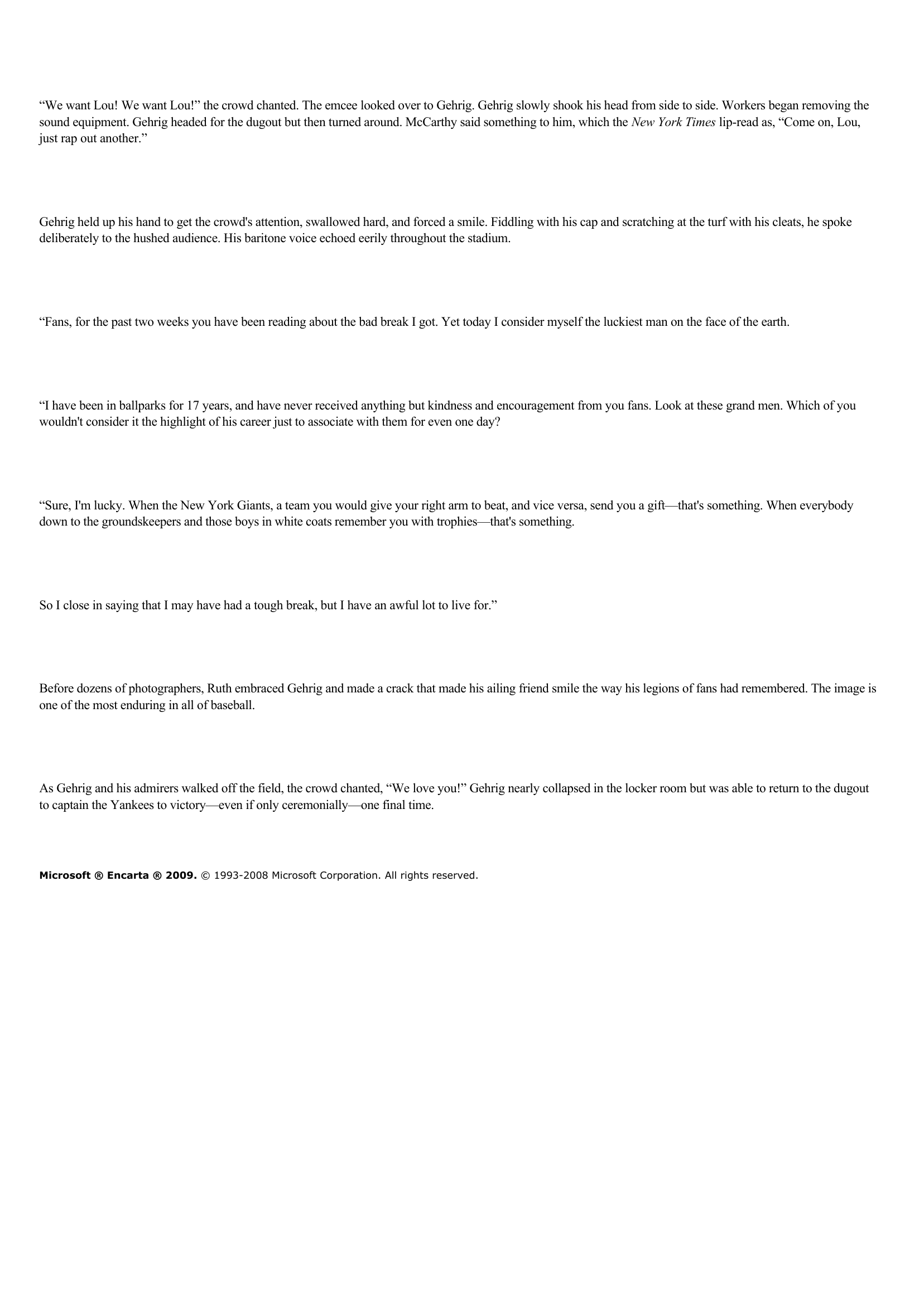Gehrig Bids Farewell.
Publié le 14/05/2013

Extrait du document
«
“We want Lou! We want Lou!” the crowd chanted.
The emcee looked over to Gehrig.
Gehrig slowly shook his head from side to side.
Workers began removing thesound equipment.
Gehrig headed for the dugout but then turned around.
McCarthy said something to him, which the New York Times lip-read as, “Come on, Lou, just rap out another.”
Gehrig held up his hand to get the crowd's attention, swallowed hard, and forced a smile.
Fiddling with his cap and scratching at the turf with his cleats, he spokedeliberately to the hushed audience.
His baritone voice echoed eerily throughout the stadium.
“Fans, for the past two weeks you have been reading about the bad break I got.
Yet today I consider myself the luckiest man on the face of the earth.
“I have been in ballparks for 17 years, and have never received anything but kindness and encouragement from you fans.
Look at these grand men.
Which of youwouldn't consider it the highlight of his career just to associate with them for even one day?
“Sure, I'm lucky.
When the New York Giants, a team you would give your right arm to beat, and vice versa, send you a gift—that's something.
When everybodydown to the groundskeepers and those boys in white coats remember you with trophies—that's something.
So I close in saying that I may have had a tough break, but I have an awful lot to live for.”
Before dozens of photographers, Ruth embraced Gehrig and made a crack that made his ailing friend smile the way his legions of fans had remembered.
The image isone of the most enduring in all of baseball.
As Gehrig and his admirers walked off the field, the crowd chanted, “We love you!” Gehrig nearly collapsed in the locker room but was able to return to the dugoutto captain the Yankees to victory—even if only ceremonially—one final time.
Microsoft ® Encarta ® 2009. © 1993-2008 Microsoft Corporation.
All rights reserved..
»
↓↓↓ APERÇU DU DOCUMENT ↓↓↓
Liens utiles
- Lou Gehrig.
- Lou Gehrig Lou Gehrig (1903-1941), American professional baseball player, also known as the Iron Horse because he established a record for the number of consecutive games played by a professional baseball player, appearing in 2130 games in succession from 1925 to 1939.


